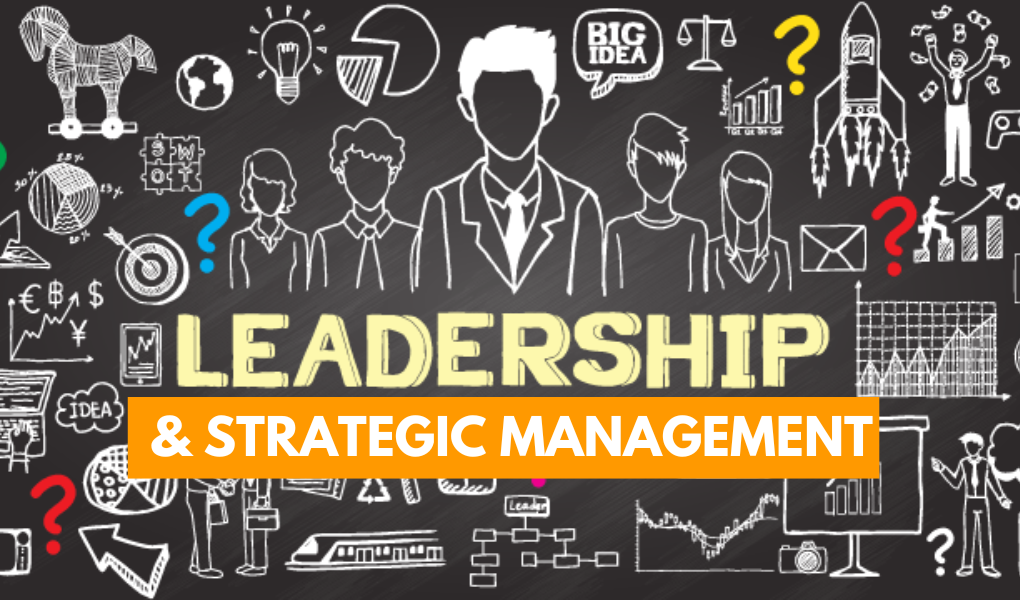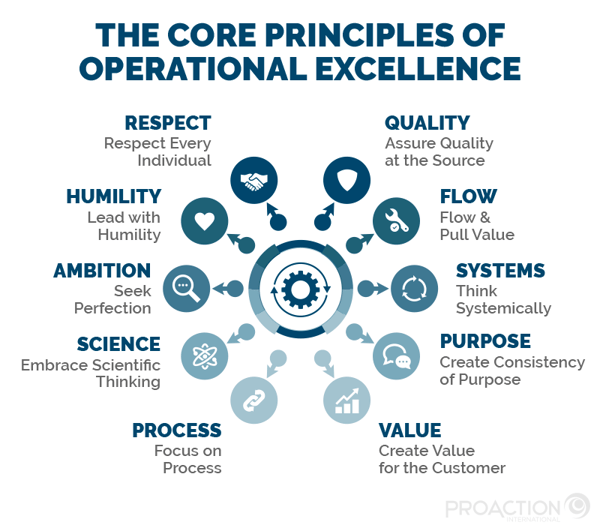embarking on the journey of leadership as a new CxO requires a steadfast commitment to continuous learning and development. Comprehensive training not only equips executives with essential skills like strategic vision, financial acumen, and effective communication but also fosters a mindset of innovation and global competence. Investing in such training is not merely an investment in personal growth but a strategic move towards ensuring organizational success and excellence. By embracing ongoing learning opportunities and leveraging training resources like the MEDA Foundation, new CxOs can effectively navigate complexities, inspire their teams, and lead their organizations towards sustainable growth in today’s competitive landscape.
CxO 101 Training: A Blueprint for Maximizing Effectiveness
Introduction
In today’s rapidly evolving business landscape, the role of Chief Officers (CxOs) has become more complex and demanding than ever. Whether it’s the CEO, CFO, COO, or any other C-suite position, these leaders are at the helm of their organizations, steering them towards success amidst uncertainty and change. To navigate these challenges effectively, comprehensive training for CxOs is not just beneficial but essential. This article delves into the importance of such training, the crucial role CxOs play in their companies, and the myriad benefits of investing in a well-rounded development program.
Importance of Training for CxOs
Setting the Stage: Why Effective Leadership is Crucial for Organizational Success
Effective leadership is the cornerstone of any successful organization. CxOs are responsible for setting the vision, establishing strategic goals, and guiding their companies through complex business environments. They must inspire confidence among stakeholders, foster a culture of innovation, and ensure operational excellence. Without robust leadership, even the most promising companies can falter. Training equips CxOs with the necessary skills and knowledge to lead effectively, make informed decisions, and drive the organization towards its objectives.
The Role of CxOs in Shaping the Future of the Company
CxOs hold the strategic reins of their organizations. They are instrumental in defining the company’s direction and ensuring its long-term sustainability. Their decisions on investments, market expansions, product development, and talent management have far-reaching implications. By developing a deep understanding of the business landscape, embracing innovation, and implementing sound strategic initiatives, CxOs shape the future of their companies. Effective training provides them with the tools to anticipate market trends, manage risks, and capitalize on opportunities, thereby securing the organization’s future.
Overview of the Benefits of Comprehensive Training
A well-structured training program for CxOs offers numerous benefits:
- Holistic Development: Training ensures that CxOs develop a well-rounded skill set, encompassing strategic leadership, financial acumen, operational efficiency, and more. This holistic development is critical for tackling the multifaceted challenges of their roles.
- Informed Decision-Making: Training programs often include modules on data analysis, financial management, and risk assessment. These empower CxOs to make decisions based on robust data and insights, reducing the likelihood of costly errors.
- Enhanced Innovation and Technological Savvy: As technology continues to disrupt industries, CxOs must stay abreast of the latest advancements. Training in innovation management and emerging technologies helps leaders drive digital transformation and maintain a competitive edge.
- Improved Risk Management and Compliance: Understanding regulatory landscapes and risk management frameworks is crucial for avoiding legal pitfalls and ensuring business continuity. Training equips CxOs with the knowledge to navigate these areas effectively.
- Stronger Leadership and Employee Engagement: Effective leaders inspire and motivate their teams. Training in human resources and organizational behavior helps CxOs build a positive corporate culture, enhance employee engagement, and foster leadership development within their teams.
- Enhanced Communication and Stakeholder Management: Clear communication and effective stakeholder management are vital for organizational harmony and success. Training programs that focus on these skills ensure that CxOs can articulate their vision, manage expectations, and build strong relationships with all stakeholders.
By investing in comprehensive training, organizations not only enhance the capabilities of their CxOs but also secure a competitive advantage in the marketplace. Well-trained CxOs are better equipped to lead their companies through challenges, seize new opportunities, and drive sustained growth.
Dynamic and demanding nature of C-suite roles necessitates a commitment to continuous learning and development. Comprehensive training for CxOs is not merely an option but a strategic imperative for organizations aiming for long-term success. By setting the stage for effective leadership, shaping the future of the company, and reaping the myriad benefits of a well-rounded development program, organizations can ensure that their CxOs are fully equipped to lead with confidence and drive their companies towards a prosperous future.

Key Areas of Training for CxOs
Personality Development
Content:
- Self-awareness and Emotional Intelligence:
- Understanding one’s strengths, weaknesses, and emotional triggers.
- Developing the ability to recognize, understand, and manage emotions in oneself and others.
- Building empathy and improving interpersonal relationships.
- Stress Management and Resilience:
- Learning techniques to manage stress effectively.
- Building resilience to cope with challenges and setbacks.
- Promoting work-life balance and mental well-being.
- Ethical Leadership and Integrity:
- Understanding the importance of ethics in leadership.
- Developing a personal code of conduct and ethical decision-making skills.
- Promoting a culture of integrity and transparency within the organization.
Trainer’s Role:
- Guiding Through Personality Assessments and Feedback Sessions:
- Administering personality assessments to help CxOs gain insights into their behavioral patterns.
- Providing personalized feedback to highlight areas of strength and opportunities for improvement.
- Facilitating self-reflection and goal setting.
- Offering Workshops on Mindfulness, Stress Management, and Ethical Decision-Making:
- Conducting mindfulness and stress management workshops to equip CxOs with practical tools for maintaining mental well-being.
- Providing training on ethical frameworks and decision-making processes.
- Encouraging discussions and scenarios to practice ethical leadership.
Importance:
- Enhances Personal Growth:
- Promotes continuous self-improvement and professional development.
- Fosters a growth mindset and adaptability in a rapidly changing business environment.
- Emotional Stability:
- Equips CxOs with the skills to manage their emotions effectively.
- Reduces the risk of burnout and enhances overall mental health.
- Improves relationships with colleagues, stakeholders, and teams.
- Ethical Conduct:
- Strengthens the moral compass of CxOs, ensuring decisions align with core values.
- Builds trust and credibility with employees, customers, and investors.
- Cultivates a corporate culture based on integrity and ethical behavior.
Expected Outcome:
- Well-Rounded Leaders:
- CxOs who are self-aware, emotionally intelligent, and capable of leading with empathy and authenticity.
- Leaders who can navigate complex interpersonal dynamics and foster positive workplace relationships.
- Strong Emotional Intelligence:
- Improved ability to handle stress and maintain composure under pressure.
- Enhanced conflict resolution skills and the ability to inspire and motivate others.
- Ethical Standards:
- Leaders who consistently demonstrate ethical behavior and decision-making.
- A positive organizational culture that prioritizes integrity and transparency.
Investing in personality development as part of CxO training ensures that leaders are not only skilled in strategic and operational aspects but also equipped with the emotional and ethical foundation necessary for effective leadership. This holistic approach to training cultivates well-rounded leaders who can drive organizational success while maintaining personal well-being and upholding high ethical standards.

Strategic Leadership
Content:
- Developing and Implementing Strategic Plans:
- Understanding the components of a strategic plan.
- Learning the process of creating actionable, measurable plans.
- Implementing strategies effectively across various departments.
- Setting Vision and Direction:
- Crafting a compelling vision that inspires and guides the organization.
- Defining clear, achievable goals aligned with the company’s mission.
- Communicating the vision and direction to all stakeholders effectively.
Trainer’s Role:
- Providing Real-World Examples and Case Studies:
- Sharing successful and unsuccessful strategic initiatives from various industries.
- Analyzing case studies to identify best practices and common pitfalls.
- Encouraging critical thinking through real-world business scenarios.
- Facilitating Strategic Thinking Exercises:
- Leading workshops and simulations that challenge participants to develop and test strategies.
- Offering tools and frameworks for strategic analysis and planning.
- Promoting collaborative problem-solving and innovative thinking.
Importance:
- Ensures Alignment of Organizational Goals with Strategic Initiatives:
- Guarantees that all departments and teams are working towards common objectives.
- Enhances coherence and coordination across the organization.
- Facilitates the achievement of long-term goals through well-aligned efforts.
Expected Outcome:
- Ability to Create and Execute Long-Term Strategies that Drive Success:
- Empowered leaders capable of developing robust, forward-looking strategies.
- Improved capability to adapt to changing market conditions and competitive landscapes.
- Enhanced organizational agility and sustained competitive advantage.
Strategic leadership training is critical for CxOs as it equips them with the necessary skills to develop and implement strategies that propel the organization forward. By setting a clear vision and direction, and ensuring the alignment of goals across the company, trained CxOs can drive long-term success and maintain a competitive edge in the market.

Financial Acumen
Content:
- Understanding Financial Statements, Budgeting, and Forecasting:
- Financial Statements: Learning to read and interpret balance sheets, income statements, and cash flow statements.
- Budgeting: Developing and managing budgets to control costs and optimize resource allocation.
- Forecasting: Using historical data and market trends to predict future financial performance and plan accordingly.
- Managing Financial Risks:
- Risk Identification: Identifying potential financial risks, including market fluctuations, credit risks, and operational risks.
- Risk Assessment: Evaluating the likelihood and impact of identified risks.
- Risk Mitigation: Developing strategies to mitigate risks, such as diversifying investments, hedging, and insurance.
Trainer’s Role:
- Offering Practical Training on Financial Tools and Techniques:
- Tools: Introducing financial software and tools used for analysis, budgeting, and forecasting.
- Techniques: Teaching methods for financial modeling, ratio analysis, and performance metrics.
- Conducting Financial Analysis Workshops:
- Workshops: Organizing hands-on workshops where CxOs can practice analyzing financial data and making decisions based on their analyses.
- Case Studies: Providing real-world scenarios to apply financial analysis techniques and solve financial challenges.
Importance:
- Enables Informed Decision-Making and Financial Stability:
- Informed Decisions: Ensures CxOs make decisions based on solid financial data and insights, reducing the risk of costly errors.
- Stability: Promotes financial health and stability by enabling effective management of budgets, investments, and risks.
Expected Outcome:
- Proficiency in Financial Management and Strategic Financial Planning:
- Financial Management: Competence in managing the organization’s financial resources efficiently and effectively.
- Strategic Planning: Ability to develop long-term financial strategies that support the company’s growth and sustainability.
Financial acumen is a critical area of training for CxOs, as it empowers them with the knowledge and skills needed to manage their organization’s finances proficiently. By understanding financial statements, mastering budgeting and forecasting, and effectively managing financial risks, trained CxOs can ensure financial stability and make informed decisions that drive strategic success.

Operational Excellence
Content:
- Enhancing Day-to-Day Operations and Efficiency:
- Operational Assessment: Evaluating current operational practices to identify areas for improvement.
- Efficiency Improvement: Implementing strategies to enhance workflow, reduce waste, and maximize resource utilization.
- Process Optimization and Lean Management:
- Process Mapping: Documenting and analyzing business processes to understand inefficiencies and bottlenecks.
- Lean Principles: Applying lean management techniques to eliminate waste, streamline processes, and improve quality.
- Continuous Improvement: Establishing a culture of ongoing improvement through regular reviews and updates.
Trainer’s Role:
- Teaching Best Practices in Operations Management:
- Industry Standards: Introducing globally recognized best practices and standards in operations management.
- Case Studies: Presenting case studies of successful operational transformations in various industries.
- Leading Process Improvement Projects:
- Hands-On Projects: Guiding participants through real or simulated process improvement initiatives.
- Tools and Techniques: Providing training on tools like Six Sigma, Kaizen, and other process improvement methodologies.
Importance:
- Improves Organizational Productivity and Efficiency:
- Productivity Gains: Enhancing the efficiency of operations leads to higher productivity and better utilization of resources.
- Quality Improvement: Optimizing processes results in higher quality outputs and reduced error rates.
- Cost Reduction: Streamlined operations lower operational costs and improve profitability.
Expected Outcome:
- Streamlined Operations Leading to Cost Savings and Higher Output:
- Operational Efficiency: Achieving smoother, faster, and more reliable operational processes.
- Cost Efficiency: Realizing significant cost savings through waste reduction and improved process efficiency.
- Higher Output: Increasing production capacity and meeting customer demands more effectively.
Operational excellence training equips CxOs with the knowledge and skills needed to enhance the efficiency and effectiveness of their organization’s operations. By focusing on process optimization and lean management, CxOs can drive significant improvements in productivity, quality, and cost efficiency. This leads to streamlined operations that support the company’s strategic goals and competitive advantage in the market.

Risk Management and Compliance
Content:
- Identifying and Mitigating Risks:
- Risk Identification: Techniques for identifying various types of risks including operational, financial, strategic, and reputational risks.
- Risk Analysis: Assessing the likelihood and potential impact of identified risks.
- Risk Mitigation: Developing and implementing strategies to minimize or eliminate risks, such as risk transfer, avoidance, reduction, and acceptance.
- Ensuring Legal and Regulatory Compliance:
- Regulatory Frameworks: Understanding the legal and regulatory landscape relevant to the organization.
- Compliance Processes: Establishing and maintaining processes to ensure adherence to laws, regulations, and industry standards.
- Internal Audits: Conducting regular internal audits to identify compliance gaps and address them proactively.
Trainer’s Role:
- Providing Insights on Risk Assessment Tools and Compliance Requirements:
- Risk Assessment Tools: Introducing and training on tools and software used for risk assessment and management.
- Compliance Training: Educating CxOs on current and emerging compliance requirements specific to their industry.
- Conducting Risk Management Simulations:
- Simulations: Organizing risk management simulations to provide practical experience in handling potential risk scenarios.
- Scenario Analysis: Facilitating discussions on real-world cases and hypothetical situations to improve decision-making skills under pressure.
Importance:
- Protects the Organization from Potential Legal and Financial Penalties:
- Legal Protection: Ensures that the organization operates within legal boundaries, reducing the risk of legal action.
- Financial Safeguarding: Minimizes financial losses by proactively managing and mitigating risks.
Expected Outcome:
- Robust Risk Management Framework and Compliance Culture:
- Risk Framework: Establishment of a comprehensive risk management framework that identifies, assesses, and mitigates risks effectively.
- Compliance Culture: Development of a strong culture of compliance where all employees understand and adhere to regulatory requirements and ethical standards.
Risk management and compliance training are essential for CxOs to protect their organizations from unforeseen legal and financial challenges. By identifying and mitigating risks and ensuring regulatory compliance, CxOs can safeguard their company’s assets and reputation. This training cultivates a robust risk management framework and a strong compliance culture, ensuring the long-term stability and success of the organization.

Innovation and Technology
Content:
- Fostering Innovation and Leveraging New Technologies:
- Innovation Culture: Developing a culture that encourages creativity, experimentation, and the sharing of new ideas.
- Technology Integration: Understanding how to integrate cutting-edge technologies into business processes and products.
- Innovation Strategies: Formulating and implementing strategies to drive innovation within the organization.
- Managing Digital Transformation:
- Digital Strategy: Creating a comprehensive digital transformation roadmap aligned with business objectives.
- Change Management: Leading and managing change associated with digital initiatives, including overcoming resistance and fostering adoption.
- Technology Implementation: Overseeing the implementation of digital technologies, such as AI, IoT, blockchain, and cloud computing.
Trainer’s Role:
- Demonstrating Successful Innovation Models:
- Case Studies: Presenting examples of companies that have successfully fostered innovation and undergone digital transformation.
- Frameworks: Introducing frameworks and methodologies for managing innovation, such as Design Thinking, Agile, and Lean Startup.
- Guiding Through the Latest Technological Trends and Their Applications:
- Tech Trends: Keeping CxOs updated on the latest technological advancements and trends.
- Practical Applications: Demonstrating how these technologies can be applied to solve business problems and create value.
Importance:
- Maintains Competitive Edge and Drives Growth:
- Competitive Advantage: Staying ahead of competitors by continuously innovating and adopting new technologies.
- Business Growth: Driving revenue growth through innovative products, services, and business models.
Expected Outcome:
- Enhanced Innovation Capability and Tech-Savvy Leadership:
- Innovation Capability: Building a robust capability to generate, evaluate, and implement innovative ideas.
- Tech-Savvy Leadership: Equipping leaders with the knowledge and confidence to leverage technology strategically.
Innovation and technology are critical drivers of success in today’s business environment. Training in these areas enables CxOs to foster a culture of innovation and effectively manage digital transformation initiatives. By staying abreast of technological trends and applying them strategically, CxOs can maintain a competitive edge and drive sustained growth for their organizations. This training cultivates leaders who are not only innovative thinkers but also adept at leveraging technology to achieve business goals.

Human Resources and Organizational Behavior
Content:
- Talent Management and Leadership Development:
- Recruitment and Selection: Strategies for attracting and hiring top talent that aligns with organizational goals and culture.
- Training and Development: Designing programs to enhance employee skills and capabilities, including leadership development initiatives.
- Succession Planning: Identifying and grooming future leaders within the organization to ensure continuity and growth.
- Building a Positive Corporate Culture:
- Culture Definition: Defining and communicating organizational values, norms, and behaviors that contribute to a positive workplace culture.
- Employee Engagement: Strategies to foster a sense of belonging, motivation, and commitment among employees.
- Workplace Well-being: Promoting work-life balance, health, and well-being initiatives to support employee satisfaction and productivity.
Trainer’s Role:
- Offering Training on HR Best Practices and Organizational Psychology:
- HR Best Practices: Educating CxOs on legal compliance, performance management, compensation and benefits, and employee relations.
- Organizational Psychology: Providing insights into human behavior, motivation theories, and dynamics within teams and organizations.
- Facilitating Team-Building and Leadership Exercises:
- Team Dynamics: Conducting exercises to enhance communication, collaboration, and trust among team members.
- Leadership Development: Coaching CxOs on effective leadership styles, conflict resolution, and decision-making in team settings.
Importance:
- Boosts Employee Motivation and Organizational Harmony:
- Employee Motivation: Engaged employees are more productive, innovative, and loyal to the organization.
- Organizational Harmony: Positive relationships and effective communication reduce conflicts and promote a supportive work environment.
Expected Outcome:
- High Employee Engagement and Effective Team Leadership:
- Employee Engagement: Cultivating a workforce that is motivated, committed, and aligned with organizational goals.
- Effective Team Leadership: Empowering leaders to build cohesive teams, resolve conflicts, and inspire high performance.
Human resources and organizational behavior training is essential for CxOs to effectively manage talent and cultivate a positive workplace culture. By investing in talent management, leadership development, and fostering a supportive organizational environment, CxOs can enhance employee engagement, boost productivity, and strengthen team dynamics. This training equips leaders with the skills and insights needed to build high-performing teams and drive organizational success through effective people management practices.

Communication and Stakeholder Management
Content:
- Effective Communication Strategies:
- Clear and Concise Messaging: Techniques for delivering information clearly and succinctly.
- Active Listening: Strategies for listening attentively and empathetically to understand stakeholder perspectives.
- Feedback Mechanisms: Establishing channels for constructive feedback and communication loops within the organization.
- Managing Relationships with Stakeholders:
- Stakeholder Analysis: Identifying key stakeholders and understanding their interests, expectations, and influence.
- Relationship Building: Building and maintaining positive relationships with stakeholders through effective communication and transparency.
- Conflict Resolution: Strategies for resolving conflicts and managing disagreements professionally.
Trainer’s Role:
- Teaching Advanced Communication Skills:
- Presentation Skills: Enhancing skills in public speaking, presenting ideas persuasively, and engaging audiences.
- Negotiation Techniques: Training on negotiation strategies and tactics to achieve mutually beneficial outcomes.
- Interpersonal Communication: Developing skills for effective one-on-one and group communication.
- Role-Playing Stakeholder Interactions:
- Simulation Exercises: Conducting role-playing scenarios to practice communication with different stakeholder groups.
- Feedback and Reflection: Providing feedback and opportunities for reflection to improve communication effectiveness.
Importance:
- Ensures Clarity and Alignment Across the Organization:
- Alignment: Ensuring that all stakeholders understand organizational goals, strategies, and expectations.
- Clarity: Clear communication reduces misunderstandings and promotes unity of purpose within the organization.
Expected Outcome:
- Strong Communication Channels and Stakeholder Trust:
- Effective Communication Channels: Establishing open and transparent communication channels across all levels of the organization.
- Stakeholder Trust: Building trust and credibility with stakeholders through consistent, clear, and honest communication.
Communication and stakeholder management training equips CxOs with the skills needed to communicate effectively and manage relationships with stakeholders. By mastering advanced communication strategies and practicing stakeholder interactions through role-playing exercises, CxOs can ensure clarity, alignment, and trust across the organization. This training fosters strong communication channels, enhances stakeholder relationships, and ultimately contributes to the organization’s success and sustainability in a competitive business environment.

Global and Cultural Awareness
Content:
- Navigating Global Markets and Cultural Differences:
- Global Market Analysis: Understanding market trends, dynamics, and consumer behavior in different regions.
- Cultural Awareness: Recognizing cultural nuances, values, and norms that impact business practices and relationships.
- Cross-Cultural Communication: Strategies for communicating effectively across cultures and adapting communication styles.
- Leading Multicultural Teams:
- Team Dynamics: Managing diverse teams with respect to cultural differences, communication barriers, and conflict resolution.
- Inclusive Leadership: Promoting inclusivity, equity, and respect for cultural diversity within the team.
- Building Trust: Cultivating trust and collaboration among team members from different cultural backgrounds.
Trainer’s Role:
- Providing Insights on International Business Practices:
- Market Insights: Sharing knowledge on global market trends, competitive landscapes, and strategic considerations for international expansion.
- Legal and Regulatory Considerations: Educating CxOs on international laws, regulations, and compliance requirements.
- Conducting Cross-Cultural Leadership Training:
- Cultural Intelligence: Developing cultural intelligence (CQ) to navigate and succeed in multicultural environments.
- Cross-Cultural Sensitivity: Training on cultural sensitivity and awareness to minimize misunderstandings and enhance teamwork.
- Case Studies and Role-Playing: Using case studies and role-playing exercises to simulate cross-cultural scenarios and practice effective leadership.
Importance:
- Facilitates Global Expansion and Effective Cross-Border Operations:
- Global Expansion: Equipping CxOs with the skills and knowledge to enter new markets and adapt business strategies globally.
- Operational Efficiency: Enhancing operational efficiency and effectiveness across borders through cultural understanding and adaptation.
Expected Outcome:
- Competence in Managing Global Operations and Diverse Teams:
- Effective Leadership: Leadership capabilities to inspire and unite diverse teams towards common goals.
- Global Mindset: Developing a global mindset that embraces cultural diversity, fosters innovation, and drives international success.
Global and cultural awareness training is crucial for CxOs to navigate global markets, lead multicultural teams, and ensure the success of cross-border operations. By understanding cultural differences, adapting communication styles, and promoting inclusive leadership, CxOs can facilitate global expansion and foster a collaborative and productive work environment across diverse cultures. This training enhances competence in managing global operations, strengthens cross-cultural relationships, and positions the organization for sustained growth and success in an increasingly interconnected world.

The Role of Trainers in CxO Development
Training CxOs (Chief Experience Officers) is a multifaceted endeavor that requires expertise from various domains to effectively prepare leaders for their roles. Trainers play a pivotal role in imparting knowledge, skills, and insights that are essential for CxOs to succeed in today’s dynamic business environment. Here’s how different types of trainers contribute to the development of CxOs:
Experienced Executives: Real-World Insights and Mentorship
Experienced executives bring invaluable real-world experience to CxO training. They have walked the path of leadership, navigated challenges, and achieved success in their respective industries. As trainers, they offer:
- Practical Wisdom: Insights into strategic decision-making, organizational dynamics, and leadership challenges based on personal experiences.
- Mentorship: Guidance on leadership qualities, managing stakeholder relationships, and navigating complex business scenarios.
Industry Experts: Deep Knowledge and Specialized Skills
Industry experts possess deep domain knowledge and specialized skills relevant to specific industries or functional areas. They contribute:
- In-Depth Expertise: Knowledge of industry trends, best practices, and emerging technologies critical for strategic decision-making.
- Specialized Skills: Training on industry-specific strategies, regulatory requirements, and operational excellence.
Academic Professionals: Theoretical Frameworks and Cutting-Edge Research
Academic professionals bring theoretical frameworks, research insights, and a scholarly approach to CxO training. They offer:
- Theoretical Foundation: Understanding of management principles, organizational behavior, and strategic frameworks derived from research and academic rigor.
- Cutting-Edge Research: Insights into emerging trends, innovation theories, and data-driven approaches to business challenges.
Consultants: Broad Experience from Various Industries and Problem-Solving Techniques
Consultants bring diverse experience across industries and expertise in problem-solving methodologies. They provide:
- Cross-Industry Perspective: Insights gained from working with diverse clients and industries, offering a broad view of business challenges and solutions.
- Problem-Solving Techniques: Tools such as Lean Six Sigma, change management methodologies, and process improvement strategies to drive organizational effectiveness.
Effective CxO training leverages the collective expertise of experienced executives, industry experts, academic professionals, and consultants. Each type of trainer brings unique perspectives, skills, and knowledge essential for developing well-rounded leaders capable of navigating complex business landscapes. By integrating real-world insights, deep industry knowledge, academic rigor, and diverse problem-solving approaches, trainers play a crucial role in preparing CxOs to lead with confidence, innovate strategically, and drive organizational success in an evolving global marketplace.

The Importance of Comprehensive Training for CxOs
Comprehensive training for CxOs (Chief Experience Officers) is instrumental in preparing them to tackle the multifaceted challenges of executive leadership. Here are key reasons why such training is crucial:
Holistic Development: Prepares CxOs for Diverse Challenges
CxOs face a wide array of challenges spanning strategic planning, operational management, stakeholder relations, and crisis response. Comprehensive training ensures they are equipped with:
- Cross-Functional Skills: Mastery of diverse disciplines from finance and operations to human resources and technology.
- Adaptability: Ability to navigate changing market landscapes, technological advancements, and global economic shifts.
Informed Decision-Making: Enhances Strategic and Operational Decisions
Effective decision-making is at the core of CxO responsibilities. Comprehensive training provides:
- Strategic Acumen: Understanding of market trends, competitive analysis, and industry best practices.
- Data-Driven Insights: Skills to interpret financial reports, performance metrics, and market data for informed decision-making.
Risk Mitigation: Equips Leaders to Handle Potential Threats
CxOs must anticipate and manage risks to safeguard organizational stability and growth. Training focuses on:
- Risk Assessment: Identifying potential risks across operations, finance, compliance, and reputation.
- Risk Management Strategies: Implementing proactive measures to mitigate risks and capitalize on opportunities.
Competitive Advantage: Fosters Innovation and Efficiency
To maintain relevance and thrive in competitive markets, CxOs need to foster innovation and operational efficiency through:
- Innovation Leadership: Cultivating a culture of innovation, creativity, and continuous improvement.
- Efficiency Optimization: Streamlining processes, adopting new technologies, and optimizing resource allocation.
Leadership and Motivation: Develops Skills to Inspire and Lead Teams Effectively
CxOs play a pivotal role in guiding organizational culture and motivating teams toward shared goals. Training focuses on:
- Leadership Development: Enhancing communication skills, emotional intelligence, and conflict resolution abilities.
- Motivational Strategies: Inspiring and empowering teams to achieve high performance and foster a positive work environment.
Comprehensive training for CxOs is essential for their holistic development, informed decision-making, risk mitigation, competitive advantage, and effective leadership. By equipping CxOs with the skills and knowledge to navigate complexities, drive innovation, and lead with integrity, organizations can ensure sustainable growth, resilience, and success in a dynamic business environment. Investing in comprehensive training not only strengthens individual capabilities but also enhances organizational agility and responsiveness to emerging challenges and opportunities.

Expected Final Outcomes of CxO 101 Training
CxO 101 training aims to equip executives with essential skills and knowledge to excel in their roles. Here are the expected final outcomes:
- Strategic Vision: Clear and Actionable Strategic Plans
- Outcome: CxOs will develop the ability to formulate clear, long-term strategic goals aligned with the organization’s mission and vision.
- Impact: Enables proactive leadership in anticipating market trends, seizing opportunities, and navigating challenges effectively.
- Financial Mastery: Proficiency in Managing the Organization’s Financial Health
- Outcome: CxOs will gain proficiency in financial analysis, budgeting, forecasting, and resource allocation.
- Impact: Facilitates informed decision-making, ensures financial stability, and maximizes profitability through strategic financial management.
- Operational Efficiency: Streamlined Processes and Optimized Operations
- Outcome: CxOs will implement process improvement initiatives to enhance efficiency, reduce waste, and improve productivity.
- Impact: Increases operational effectiveness, lowers costs, and enhances customer satisfaction through streamlined and agile operations.
- Risk and Compliance Management: Robust Frameworks to Manage Risks and Ensure Compliance
- Outcome: CxOs will establish comprehensive risk management frameworks and adherence to regulatory standards.
- Impact: Mitigates risks, protects organizational assets, and fosters a culture of compliance, ensuring sustainability and resilience.
- Innovation and Technology Leadership: Strong Capability to Drive Innovation and Adopt New Technologies
- Outcome: CxOs will foster a culture of innovation, leverage cutting-edge technologies, and drive digital transformation.
- Impact: Promotes competitive advantage, enhances product/service innovation, and accelerates business growth in a rapidly evolving digital landscape.
- Effective Human Resource Management: High Levels of Employee Engagement and Leadership Effectiveness
- Outcome: CxOs will develop skills in talent management, leadership development, and fostering a positive organizational culture.
- Impact: Improves employee retention, boosts morale and productivity, and cultivates a cohesive and motivated workforce.
- Strong Communication Skills: Clear, Transparent, and Effective Communication
- Outcome: CxOs will enhance their ability to communicate clearly, build relationships, and align stakeholders.
- Impact: Improves organizational transparency, reduces misunderstandings, and enhances collaboration and decision-making effectiveness.
- Global Competence: Ability to Manage and Lead in a Global Context
- Outcome: CxOs will develop cultural intelligence, global mindset, and skills to navigate cross-cultural complexities.
- Impact: Expands market reach, strengthens international partnerships, and ensures effective leadership in global operations and markets.
CxO 101 training is designed to deliver tangible outcomes that empower executives to lead with vision, strategic foresight, financial acumen, operational excellence, risk management proficiency, innovation leadership, effective human resource management, strong communication skills, and global competence. These outcomes collectively prepare CxOs to steer their organizations towards sustainable growth, resilience, and success in a competitive and rapidly changing business landscape. By investing in comprehensive training, organizations can ensure their leadership team is well-equipped to drive strategic initiatives, foster innovation, and achieve operational excellence across global markets.

Conclusion
To new CxOs stepping into leadership roles, the journey ahead is one of continuous learning and development. Embracing comprehensive training not only equips you with essential skills but also fosters strategic vision, operational efficiency, and innovation leadership vital for organizational success in today’s dynamic landscape.
Commitment to Training: Investing in your development as a leader yields long-term dividends for both personal growth and organizational prosperity. The insights gained from CxO 101 training—strategic vision, financial mastery, risk management, and more—position you to navigate challenges effectively and capitalize on opportunities.
Final Thought: Effective training serves as the cornerstone of successful leadership and organizational excellence. It empowers you to lead with confidence, inspire your teams, and drive sustainable growth in a competitive global environment.
The MEDA Foundation stands as a beacon of opportunity, empowering communities through economic development initiatives. Engaging with MEDA allows you to contribute to meaningful causes, fostering innovation, and entrepreneurship globally.
Reading References
- “The Leadership Challenge” by James M. Kouzes and Barry Z. Posner
- “Good to Great: Why Some Companies Make the Leap… and Others Don’t” by Jim Collins
- “Leading Change” by John P. Kotter









